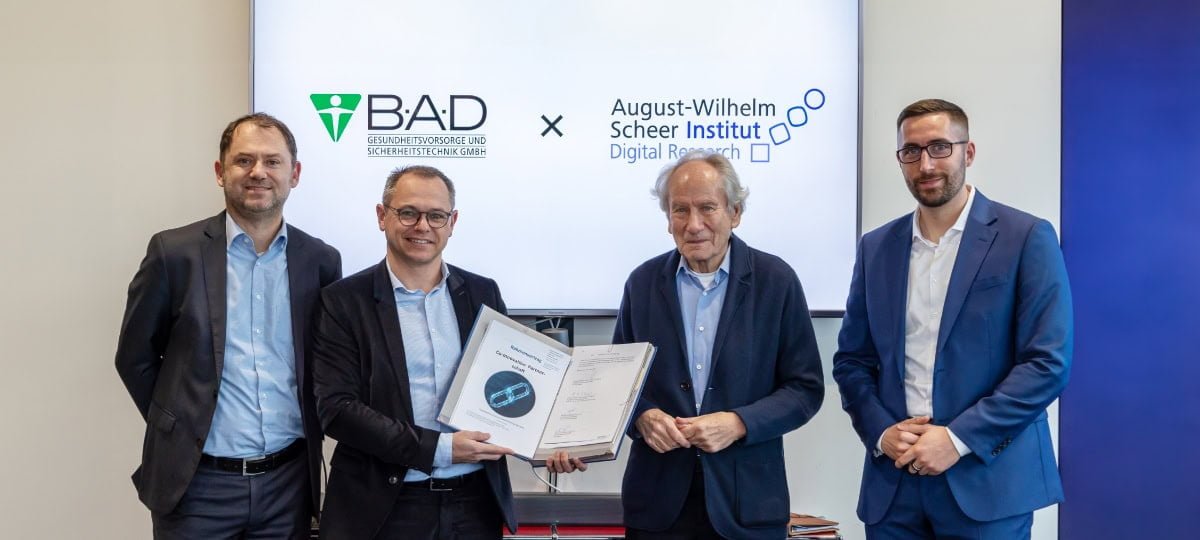SAP consulting: Challenges for users, consultants and employers
![[shutterstock.com:350473148, Jirsak]](https://e3mag.com/wp-content/uploads/2017/03/shutterstock_350473148_CMYK.jpg)

An IT decision-maker at a mortgage bank put it as follows in a survey conducted by Pierre Audoin Consultants (PAC) on the topic of using IT services for SAP application management:
"I expect the service provider to address the issue [SAP application management] strategically and to make a certain upfront investment. This also includes training employees accordingly or investing in suitable personnel.
In addition, the provider is obliged to continuously develop in order to keep pace with technological changes. Especially for SAP applications, the proximity of the service partner to SAP is important to us.
Only when these aspects are met is it a credible [service] offering over which synergies are created over time that are mutually beneficial."
Identifying and recruiting qualified employees is a difficult task in SAP consulting; equipping them with the necessary knowledge is a challenge: specialist and industry-specific training and continuing education are time-consuming and cost-intensive, and customer or project experience is only gained through practical deployment.
In addition, there are changes in the SAP services sector which, while favoring the order situation, are at the same time further raising the requirements for the qualification of SAP consultants.
- What does the customer require?
- What qualifications do the applicants or consultants need to have?
- What opportunities are open to them and how do employers need to position themselves?
The following article examines the topic of SAP consulting from the perspective of the various players and their challenges in the SAP services market.
Changing customer expectations
The SAP services market has changed over the last ten years. Today's customers expect consulting, which means their own ideas and best practices.
From the very first minute of the project, the service providers are required to contribute specialized SAP knowledge and expertise.
For this reason, it is crucial for consulting companies to provide newcomers in particular with the necessary tools as quickly as possible through suitable internal and external training. Universities - understandably - cannot provide such provider-specific training, or can do so only incompletely.
There are reasons why customers today have different expectations of service providers. On the one hand, the discipline of software development has generally matured as an essential component of IT services. On the other hand, the SAP solution portfolio in particular has become larger and larger in recent years, and the technology has become increasingly complex.
In order to master this complexity of today's SAP system landscapes, "real" experts are needed. For reasons of cost, the IT departments of SAP user companies are often unable to permanently "maintain" these experts for each specialized area.
This is when the knowledge and flexible deployment of an external SAP consultant are needed.
"We use SAP very intensively, but the wide range of SAP-related topics gives us a bellyache internally. The collaboration and exchange with SAP itself, but also with the external SAP consultants, are very valuable for us"
confirmed the IT department head of a regional bank as part of a trend study by the market analysis and consulting company PAC.
Requirements for beginners
Since, as already mentioned, SAP-specific training at universities is usually non-existent or very sporadic, knowledge of SAP systems or the Abap programming language is usually not a hiring criterion for juniors.
SAP as well as industry specialization (in Innobis' case the banking industry) is a long-term issue. With a concentrated training path from career entry, the goal of independent "consulting capability" is achieved within six to twelve months.
Training can then include a mentor as a permanent contact person, internal training by experienced colleagues and Abap certification embedded in the induction phase.
In addition, a portfolio of external training courses (for example SAP modules, social skills) is usually on the training agenda.
Further training, qualification, lateral entry
A consultant achieves seniority after three to five years of intensive project work and on-the-job training. He then begins to take responsibility for entire subject areas and to work in customer projects as a key expert, part or project manager.
The qualification of the consultants is crucial in positioning the consulting company on the market and especially for "profiling" the consultant to the client.
A consultant profile that has the common module-based certifications from SAP supplemented by project management certifications (ITIL/PRINCE 2, etc.) is usually standard.
For consulting competence, however, these are only indicators that without essential soft skills and practical experience, they will not be able to survive on the market in the long run.
Soft skills modules tailored to the clientele (e.g., how to lead workshops effectively) are important tools of the trade.
However, experienced consultants in particular should always keep up to date with the latest technical and technological developments in terms of soft skills. Many years of project affiliation or specialization in a module or technology can be a disadvantage if market developments are not observed and recognized too late.
Especially in the qualification and identification of trends, it is essential to always be one step ahead of the market and the future challenges for customers. Constant reflection and flexible adaptation of qualifications to market developments are required here in order to be proactively present to the customer as a consultant in a pioneering role.
For example, SAP itself offers an extensive range of courses on SAP S/4 Hana, Digital Transformation, Cloud, or Analytics via the online training platform openSAP to enable consultants to update their knowledge along the SAP innovation steps (e.g., Hana) on an ongoing and selected basis.
Of course, SAP's own events such as SAP TechEd in Barcelona or trade fairs organized by the German-speaking SAP User Group (DSAG) such as the DSAG Annual Congress are also important platforms for consultants to build up their knowledge.
And what about lateral entry?
In practice, there are many different ways to enter the consulting industry: There is no one career path. This makes the industry attractive for career changers who can sharpen their profile based on industry experience or transferable IT skills.
It is often possible to build on existing soft skills and make the retraining more practical.
Working in small versus large SAP consulting firms: Flat hierarchies at small, medium-sized consulting firms generally offer a broad range of tasks with the opportunity to specialize in a particular field at a later stage.
In large consulting firms, on the other hand, there are often clearly defined career models right from the start that follow a fixed rhythm and are aimed at a specific specialization.
However, they also leave less room for individual developments and deviations. In addition, smaller teams usually offer better opportunities for cross-functional exchange with colleagues.
For graduates in particular, less demarcated areas of activity and more flexible corporate structures are an opportunity to try things out initially and help shape their own career path.
Smaller consulting firms are often limited in their regional orientation - project work tends to take place nationally rather than internationally. This, of course, also influences the usual travel in the consulting business in one direction or the other.
The decision between global player and medium-sized company ultimately remains an individual one. Personal preferences and the respective advantages and disadvantages must be weighed up.
Employer Branding: SAP service providers must position themselves well - applicants have a choice: The demand for qualified SAP consultants is increasing. A study by WBS Training AG confirmed this in 2016: There were 6.7 percent more job offers for SAP consultants in January 2016 than in the same month of the previous year.
Applicants have a choice: They are offered good career opportunities in a market where they face strong competition from individual employers vying for the best employees.
In addition to the importance of positioning SAP consulting firms with customers, positioning on the applicant market is therefore also a key issue.
Employer branding, i.e. positioning and highlighting the employer brand and corporate culture, is essential today in order to bring qualified employees on board and - even more important - to retain them in the long term.
One of the growing challenges for HR and marketing is therefore to align the company's external image both online and offline, for example on the website, in social media channels or at trade fairs, with both customers and applicants.
Human resources are critical to growth, and accordingly, employee recruitment will be a key challenge for SAP consultancies in the coming years.





